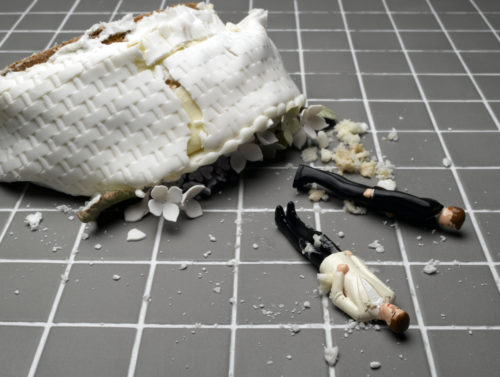A few days ago the U.S. Supreme Court made a ruling in the case of a Colorado baker who had refused, for reasons of religious conscience, to bake a wedding cake for the same-sex wedding of two men. Unfortunately, the Court ruling did not address the question of whether the baker, or anybody else similarly situated, has a First Amendment right to follow his conscience in cases like this.
The Court limited itself to ruling that the Colorado civil rights tribunal that decided to punish the baker exhibited undue anti-religious bias in arriving at that decision. So we may expect that this question will present itself again to the Court in the not-too-distant future, namely, does the “free exercise” clause of the First Amendment protect merchants who refuse to provide goods or services because they are honestly convinced that it would be sinful or immoral to do so?
In the Anglo-American world, the issue of the rights of religious conscience goes back many centuries, perhaps as far back as the time of the Lollards (followers of that rebellious priest John Wycliffe) in the 14thcentury. It was first clearly formulated in the 17thcentury when, among others, Roger Williams and his friend John Milton argued that individuals, provided they are otherwise law-abiding, have a right to obey their conscience even if that conscience happens to be in error. In the generation after Independence, that view had become almost universal in the newly founded United States.
In America, there is a long tradition of allowing persons who belong to a pacifist religion (Quakers, for instance) to obey a conscience that tells them to avoid military service. During the Viet Nam War, conscientious objector (CO) status was often extended to persons who did not belong to a pacifist religion – for example, Catholics and thoroughgoing secularists – provided they made a convincing case that they had an honest conviction that it would be immoral for them to participate in this particular war.
So much have we believed in the importance of conscience, even an erroneous conscience, that we have been willing to tolerate COs even when the fate of the nation was at stake.
But that attitude of tolerance seems to have changed. Many Americans today believe that the law should compel people like the Colorado baker to violate their consciences. And not because the fate of the nation is at stake. And not even because the gay couple would have to do without a wedding cake. (They could easily have got the cake they wanted at another bakery, and they could have got a non-customized cake even at the bakery in question.)

I am astonished at this lack of appreciation for the importance of conscience. Don’t these people realize that the right to obey one’s conscience is a fundamental human right, perhaps the most fundamental of all? These are the same people who think that abortion is a fundamental human right. And they think that sodomy is a fundamental human right. But they don’t think there is a fundamental human right to obey one’s honest conscience? Astounding. What kind of world are we living in?
I am even further astonished that these people don’t see that conscience is a great social good. The rest of us are better off when our friends and neighbors and fellow citizens pay attention to the voice of their conscience. There is, of course. such a thing as a too-strict conscience, and we don’t want to encourage that. But the social harm done by too-strict consciences is as nothing compared to the harm done by consciences that are too lax. It is madness for a society to discourage conscientiousness. But tens of millions of Americans are willing to do this in order to make the world safe for customized same-sex wedding cakes.
Why would anybody fail to appreciate the value of conscience?
Well, what is conscience? In the traditional meaning of the word (a tradition that goes back at least a few hundred years in English), it is thought of as a faculty of moral knowledge. We are unable to know rightness and wrongness the way we know things in the material world, that is, by means of our sense powers (sight, hearing, touch, etc.). But don’t worry. In addition to these sensory faculties, we have a faculty of moral knowledge. We usually call it conscience (though it has sometimes been called the moral sense).
Now many people who are secular humanists (or post-Christians, as they may also be called) don’t believe that there is a non-sensory faculty that provides us with moral knowledge. All knowledge, they hold, comes from the senses. Convictions that don’t come from the senses are not knowledge but are based on feelings or prejudices or whims. When people say, “My conscience tells me to do this or not to do that,” what they really mean (in this perspective) is, “My feelings or prejudices or whims tell me to do this or not to do that.”
If that’s all there is to conscience, there is no great reason to revere it. If some social good can be better accomplished by compelling people to disregard their consciences, why not compel?
Those who most passionately believe in same-sex marriage are likely to be secular humanists or post-Christians, who in turn are likely to believe that there is no such thing as a special faculty of moral knowledge – that is, no such thing as conscience that needs to be respected and legally protected. Who can be surprised, then, that champions of same-sex marriage are untroubled by the idea of visiting legal punishments on bakers who, for reasons of conscience, refuse to make customized same-sex wedding cakes?
Theirs is a common view, but a common view that directly threatens the moral core of every one of us.















